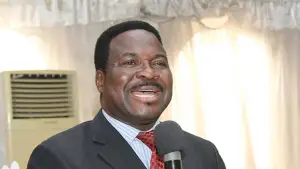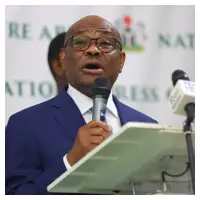Political activities are intensifying in Ekiti State ahead of the 2026 gubernatorial election, with renewed debates over zoning, political rivalries, and power dynamics that continue to shape the state's democratic landscape.
Although political parties are yet to conduct their primary elections, campaigning has already begun with various actors declaring their intentions to contest for the state's highest office.
Historical Context of Ekiti Leadership
Since Nigeria's return to democratic rule in 1999, Ekiti State has seen power rotate primarily between the Central and North Senatorial Districts. The state's political journey began with Otunba Niyi Adebayo of the Alliance for Democracy (AD), followed by Ayodele Fayose of the Peoples Democratic Party (PDP) whose first term was cut short by impeachment in 2006.
The subsequent years saw Segun Oni (PDP) take office before being replaced by Kayode Fayemi of the Action Congress of Nigeria (later APC) following a legal battle. This established a fierce rivalry between the PDP and APC that continues to define Ekiti politics today.
The Zoning Controversy
A significant political issue emerging ahead of the 2026 election is the growing demand for power shift to Ekiti South Senatorial District. The district, comprising Ekiti East, Ekiti South West, Emure, Gbonyin, Ikere, and Ise/Orun, has consistently voiced concerns about marginalization in the state's power equation.
Despite producing notable political figures like Adebayo Clement Adeyeye, Ekiti South remains the only district yet to complete a full gubernatorial term. This historical imbalance has fueled growing calls for zoning as a matter of justice and equity.
Soji Solomon, former APC chairman in Emure, Ekiti South, emphasized this sentiment, stating: "For years, Ekiti South has been sidelined in the power equation. We have capable, qualified leaders, but the political structure has consistently overlooked us. The upcoming 2026 election is the perfect moment for the APC to address this imbalance."
Political Realignments and New Movements
The political landscape is witnessing new alignments with the emergence of 'Ekiti New Dimension,' a coalition of politicians from various parties aiming to challenge the APC's governance. The group's spokesperson, Chief Segun Akinwumi, has outlined their conservative vision and commitment to offering an alternative political direction for the state.
Meanwhile, Emmanuel Fayose, younger brother to former Governor Ayodele Fayose, has declared his intention to contest under the PDP platform. His entry adds another layer of complexity to the race, with speculation about the potential influence of his politically experienced brother.
Current Political Dynamics
The ruling APC maintains a strong position in Ekiti, particularly with incumbent Governor Biodun Oyebanji seeking re-election. However, internal tensions persist regarding succession planning and the party's stance on zoning.
The PDP, though weakened both nationally and within the state, is working toward a revival. Political analysts also suggest the possibility of a "third force" emerging, potentially from the Labour Party or Social Democratic Party (SDP), though Ekiti has historically favored the two dominant parties.
As the election approaches, the interplay of zoning demands, historical rivalries, emerging political forces, and questions of equity will likely shape what could become one of the most unpredictable gubernatorial contests in Ekiti's political history.













